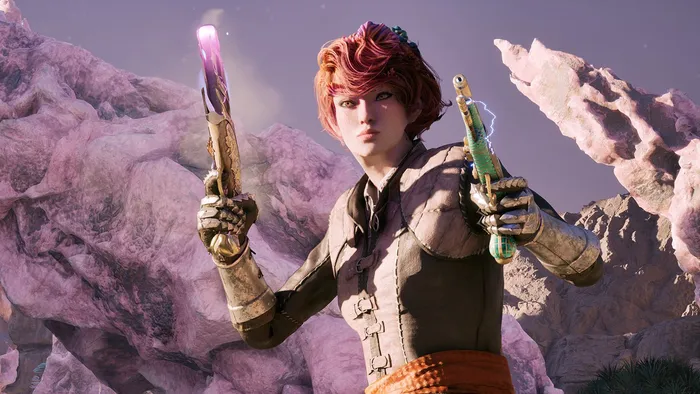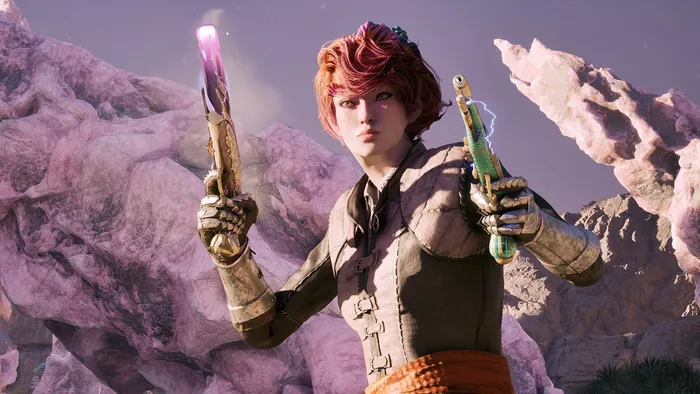The air in the gaming industry is thick with anxiety. Whispers of cancellations and layoffs have circulated for weeks, and now, a chilling report confirms the worst: Electronic Arts (EA) has severed ties with hundreds of workers, the casualties of a ruthless corporate calculus. The fallout? Respawn Entertainment, the studio behind the acclaimed Titanfall and Apex Legends franchises, finds itself reeling from the cancellation of multiple projects. This isn’t simply a case of a few missed targets; it’s a stark reminder of the precarious nature of creative work in an industry driven by profit margins. We examine the report’s findings, the impact on developers, and the unsettling questions it raises about the future of game development.
Respawn’s Recent Cuts: The Human Cost

The latest round of layoffs at Respawn Entertainment, a subsidiary of Electronic Arts (EA), has sent shockwaves through the gaming industry. According to Bloomberg News, the company has eliminated between 300 and 400 positions, with over 100 Respawn employees being “impacted” by the cuts. However, it’s unclear whether these employees have been laid off or given the opportunity to search for other jobs within EA.
In a statement on social media, Respawn Entertainment revealed that the company has decided to “step away” from two “early-stage incubation projects,” one of which was reportedly an Apex Legends extraction shooter code-named “R7.” The statement also mentioned that the team has made “targeted team adjustments” on the Apex Legends and Star Wars Jedi teams.
“We’re offering meaningful support to those impacted, including exploring new opportunities within EA,” Respawn Entertainment said in a statement.

The Numbers: Examining the Reported Layoffs
The reported layoffs at Respawn Entertainment are the latest in a series of cuts made by EA in recent years. In 2024, the company laid off 5 percent of its workforce, resulting in the loss of around 670 jobs. This move was part of a larger effort to reduce EA’s headcount by 5 percent by the end of the year.
Last year, EA shut down Battlefield support studio Ridgeline Games and canceled a first-person Star Wars game at Respawn Entertainment. The company stated that Respawn would focus on developing new games set in franchises owned by EA.
However, it’s unclear what EA’s strategy for Respawn is beyond the release of the third Star Wars Jedi game. The studio’s only other project is supporting the development of Star Wars: Zero Company with BitReactor.

“Targeted Team Adjustments”: Deconstructing EA’s Language
EA’s use of the term “targeted team adjustments” to describe the layoffs has been met with skepticism by some in the gaming industry. This phrase has been used by EA in the past to downplay the severity of layoffs, and some have argued that it’s a euphemism for “layoffs.”
EA’s statement also emphasized the company’s commitment to supporting employees who have been impacted by the layoffs. However, some have questioned the adequacy of this support, particularly in light of the company’s history of laying off large numbers of employees.
In a statement, an EA spokesperson said, “We’re offering meaningful support to those impacted, including exploring new opportunities within EA.”
Support for Impacted Workers: An Assessment
The support offered to laid-off employees is a critical aspect of any layoff process. However, the specifics of EA’s support package remain unclear.
According to EA, employees who have been impacted by the layoffs will receive “meaningful support,” including help finding new opportunities within the company. However, some have questioned the feasibility of this support, particularly given the company’s history of laying off large numbers of employees.
One possible concern is that employees who are laid off may find it difficult to secure new jobs within EA. The company’s history of layoffs has created a culture of uncertainty, and some employees may be hesitant to take on new roles within the company.
Another concern is that EA’s support package may not be comprehensive enough to meet the needs of laid-off employees. The company’s statement emphasizes the importance of exploring new opportunities within EA, but it’s unclear what specific support will be offered to employees who are unable to find new roles within the company.
- The support package may not be comprehensive enough to meet the needs of laid-off employees.
- Employees may find it difficult to secure new jobs within EA due to the company’s history of layoffs.
- The company’s statement may be seen as a PR effort to downplay the severity of the layoffs.
Cancelations and Shifting Strategies: A Look at EA’s Current Priorities
EA’s decision to cancel several games, including a first-person Star Wars game at Respawn Entertainment, has raised questions about the company’s strategy for the future. The company has stated that it will focus on developing new games set in franchises owned by EA, but it’s unclear what specific projects are in the pipeline.
One possible concern is that EA’s focus on generative AI and in-game advertising may be seen as a shift away from traditional game development. While these technologies have the potential to revolutionize the gaming industry, they also raise questions about the role of human developers in the game development process.
Another concern is that EA’s emphasis on these technologies may be seen as a way to reduce costs and increase profits. While this may be a short-term strategy, it’s unclear whether it will ultimately benefit the company in the long term.
Generative AI and In-Game Advertising: A Shift in Strategy?
EA’s decision to focus on generative AI and in-game advertising has been met with skepticism by some in the gaming industry. While these technologies have the potential to revolutionize the gaming industry, they also raise questions about the role of human developers in the game development process.
One possible concern is that EA’s emphasis on these technologies may be seen as a way to reduce costs and increase profits. While this may be a short-term strategy, it’s unclear whether it will ultimately benefit the company in the long term.
Another concern is that EA’s focus on these technologies may be seen as a shift away from traditional game development. While this may be a necessary step in the evolution of the gaming industry, it’s unclear whether it will ultimately benefit the company in the long term.
- EA’s focus on generative AI and in-game advertising may be seen as a shift away from traditional game development.
- The company’s emphasis on these technologies may be seen as a way to reduce costs and increase profits.
- The long-term benefits of this strategy are unclear.
The Death of “R7”:
The recent cancellation of the Apex Legends extraction shooter, code-named “R7”, has sent shockwaves through the gaming community. According to Bloomberg News, this project was one of the two “early-stage incubation projects” that Respawn Entertainment decided to “step away” from. The implications of this cancellation are far-reaching, and it raises questions about the future of the Apex Legends franchise.
One of the most significant concerns is the potential impact on the franchise’s player base. Apex Legends has been a behemoth in the battle royale genre, and the cancellation of a highly anticipated game mode could lead to a decline in player engagement. Furthermore, the lack of transparency from Respawn Entertainment and EA about the reasons behind the cancellation has only added to the frustration and speculation among fans.
Moreover, the cancellation of “R7” also raises questions about EA’s strategy for Respawn Entertainment. With the studio’s limited remaining slate, it is unclear what direction they will take in the future. Will they continue to focus on supporting the development of Star Wars: Zero Company with BitReactor, or will they explore new projects and franchises?
Beyond Star Wars Jedi:
EA’s decision to cancel projects at Respawn Entertainment has sparked concerns about the studio’s future. With the release of the third Star Wars Jedi game on the horizon, it is unclear what lies beyond that for the studio. The cancellation of the first-person Star Wars game last year, combined with the shutdown of Battlefield support studio Ridgeline Games, has left many wondering about EA’s strategy for Respawn Entertainment.
One possible direction could be the continued development of Star Wars games, given the massive success of the franchise. However, this would mean that Respawn Entertainment would be tied to a single franchise, limiting their creative scope and potential for growth. Alternatively, EA could explore new projects and franchises, allowing Respawn Entertainment to diversify their portfolio and attract new talent.
Ultimately, the future of Respawn Entertainment remains uncertain, and it is up to EA to provide clarity on their strategy for the studio. As the gaming industry continues to evolve, it is essential for studios to adapt and innovate to remain competitive.
The AI Factor:
The recent layoffs at Respawn Entertainment have sparked concerns about the role of generative AI in EA’s decision-making process. The company’s full-throated embrace of generative AI technology has raised questions about its potential impact on game development and worker job security.
One of the primary concerns is the potential for generative AI to replace human workers. With the ability to automate certain tasks and create game content, generative AI could potentially reduce the need for human labor in certain areas of game development. This could lead to further layoffs and job insecurity for workers in the industry.
However, it is also essential to consider the potential benefits of generative AI in game development. The technology could enable the creation of more complex and immersive game worlds, as well as streamline certain aspects of the development process. Ultimately, the key to successful implementation lies in striking a balance between human creativity and AI-driven automation.
A Troubling Pattern:
EA’s layoff history and labor concerns are part of a troubling pattern in the gaming industry. The recent layoffs at Respawn Entertainment are only the latest in a series of cuts that have affected studios across the industry.
BioWare’s Precedent:
The layoffs at BioWare in January set a precedent for EA’s communication tactics across different studios. The company’s decision to assign employees to other teams at EA, while simultaneously laying off workers, has been criticized for its lack of transparency and honesty.
Long-Term Trends:
EA’s history of layoffs is part of a broader trend in the gaming industry. The company’s decision to reduce its headcount by 5 percent in 2024, resulting in the loss of around 670 jobs, is a stark reminder of the vulnerability of workers in the industry.
The gaming industry is notorious for its crunch culture and lack of job security. The recent layoffs at Respawn Entertainment and BioWare are a stark reminder of the need for better labor practices and greater transparency in the industry.
The Unionization Movement:
The layoffs at Respawn Entertainment and BioWare have sparked renewed calls for unionization in the gaming industry. The growing unionization movement, led by organizations such as the Communication Workers of America, is seeking to address the lack of job security and poor labor practices that are endemic in the industry.
As the gaming industry continues to evolve, it is essential that workers are protected and empowered. The unionization movement offers a beacon of hope for workers in the industry, and it is up to companies like EA to take a proactive role in supporting their employees.
Conclusion
The recent layoffs at Respawn Entertainment, coupled with the cancellations of several anticipated projects, paint a troubling picture within the gaming industry. This isn’t just about lost jobs; it’s about the precarious nature of creative work in a market driven by profit margins and short-term gains. EA’s decision, motivated by financial pressures and shifting market trends, demonstrates a concerning trend: prioritizing financial stability over artistic vision and long-term development. This raises fundamental questions about the sustainability of creative endeavors within large corporations, where the pressure to deliver immediate returns can stifle innovation and artistic integrity. The ripple effects of these layoffs extend beyond Respawn. They serve as a stark reminder of the human cost inherent in the pursuit of corporate success. Experienced developers, passionate about their craft, are left searching for new opportunities, their talent potentially lost to the industry. This loss of expertise could stifle innovation and hinder the development of truly groundbreaking games in the future. The gaming industry, known for its vibrant creativity, now faces a crossroads. Will it prioritize artistic vision and long-term growth, or succumb to the relentless pressure of economic imperatives, leaving behind a landscape devoid of genuine innovation and artistic depth? Only time will tell, but the future of gaming hangs in the balance.

